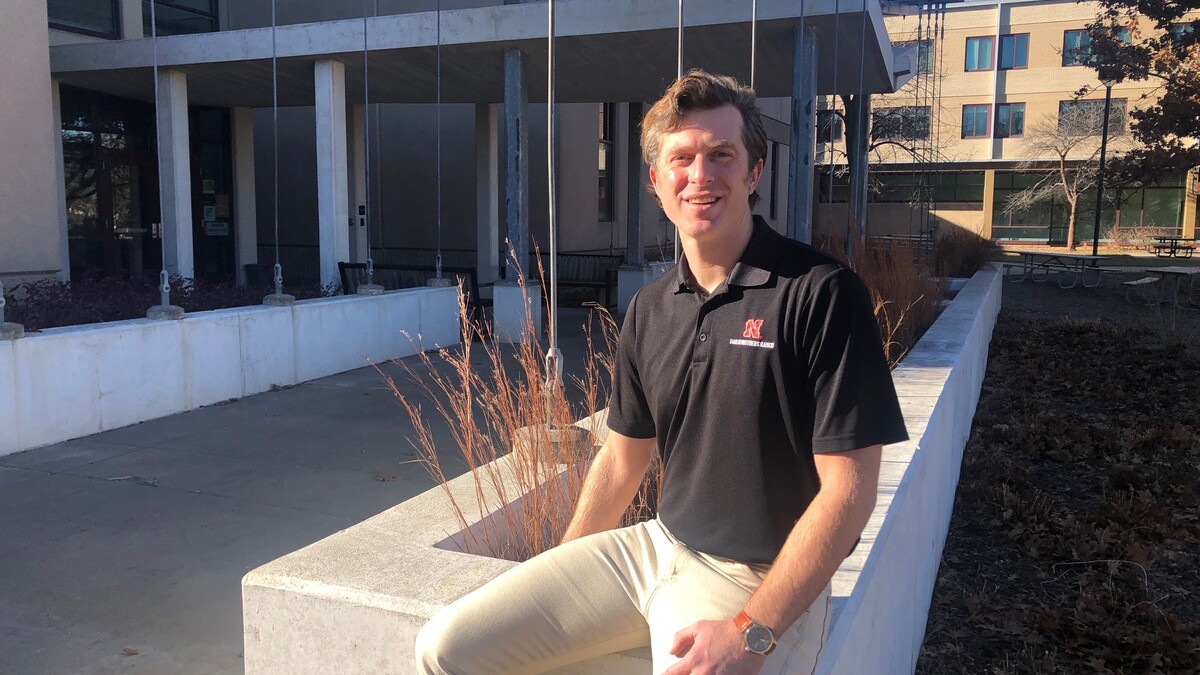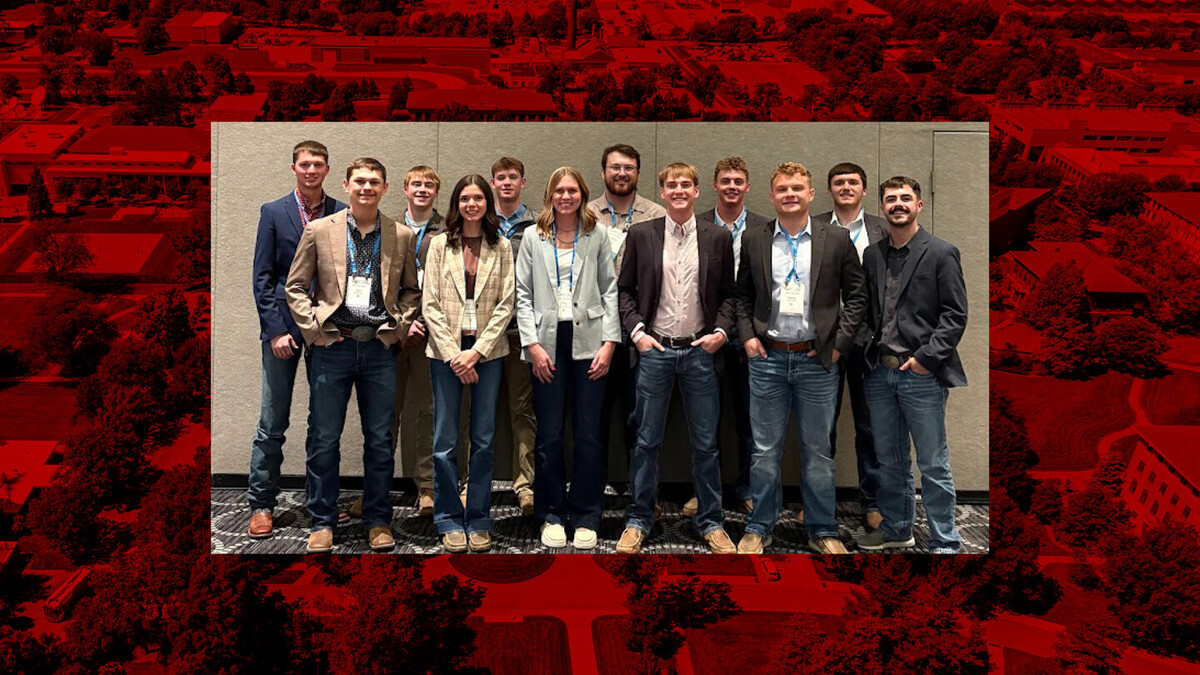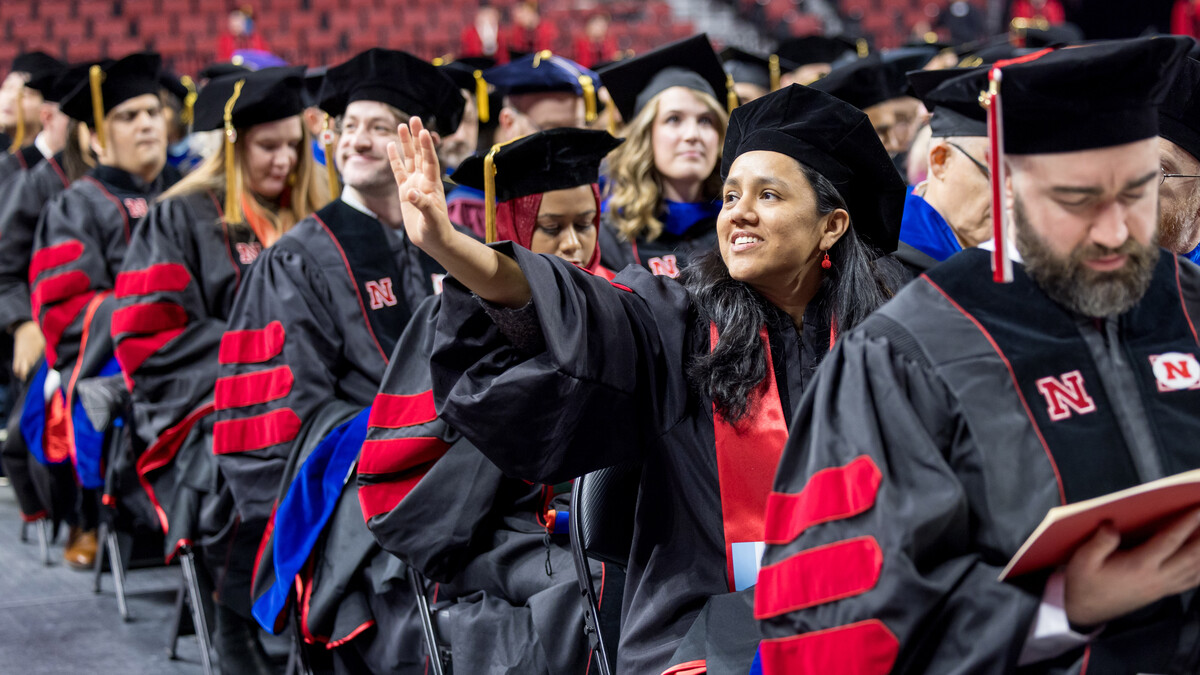Lincoln, Neb. —A joint Retirement Celebration will be held Thursday, Oct. 26, 3-5 p.m., for Dr. Lance Meinke and Dr. Brett Ratcliffe, professors in the Entomology Department at the University of Nebraska-Lincoln. Everyone is invited to this reception at the Nebraska East Union.
Both have had long and distinguished entomological careers at the university influencing Nebraskans and the world.
"Drs. Meinke and Ratcliffe are both world-class scientists whose careers have been marked by global impact and persistent enthusiasm for and commitment to their disciplines," said Dr. John Ruberson, head of the Department of Entomology. "They will be greatly missed. We wish them both continued purpose, happiness, health and curiosity in retirement."
Ratcliffe retired Sept. 30th and will receive a service award for working 55 years at UNL - most recently as a professor of entomology and former curator of the arthropod collection in the University of Nebraska State Museum. His love of the outdoors and collecting insects led to a career in entomology studying the biodiversity of beetles, especially scarab beetles of the New World tropics. He conducted field and museum research for half a century in nearly every country of Central and South America, much of the West Indies, many countries in western Europe, Japan and South Africa. In the 1970s, Ratcliffe took a two-year leave of absence and moved to the Amazon Basin with his family to work for Brazil’s National Institute for Amazonian Research (INPA).
Ratcliffe has published about his biodiversity research on beetles in 250 scientific journal articles and 13 comprehensive and beautifully-illustrated books. He received grants from the National Science Foundation, National Geographic Society, U.S. Fish and Wildlife Service and the Nebraska Game and Parks Department. He taught a core graduate course, ENTO 800 (Insect Biodiversity) for the Entomology Department on UNL’s East Campus. He also taught at Cedar Point and at the Biological Field Station in Ogallala. He mentored nine master’s students, seven doctoral students and three post-doctoral employees. Among his awards and recognitions, Ratcliffe received the Outstanding Research and Creativity Award (ORCA) from the University of Nebraska and received the prestigious Westwood Medal from the Royal Entomological Society in the United Kingdom for an outstanding publication about insect taxonomy. Ratcliffe was president and later an honorary member of the Coleopterists Society and was named a Faculty International Scholar of the Year by Phi Beta Delta at the University of Nebraska. He was also presented the Charles E. Bessey Award from the Center for Great Plains Studies at the UNL.
Ratcliffe earned his Ph.D., M.S. and B.S. degrees from the University of Nebraska-Lincoln.
Meinke is finishing nearly 39 years of outstanding service to the university focusing largely on the biology, ecology and management of Diabrotica beetle species (rootworms), particularly in field corn where these insects cause more than $1 billion in losses and costs annually worldwide. His expertise has been valued by environmental regulators, agricultural consultants, farmers, industry and other clientele groups regarding corn rootworm IPM/IRM (integrated pest management/integrated resistance management). Meinke’s secondary research included the biology and pest potential of Colaspis species in Nebraska, and the taxonomy, host relationships and distribution of criocerinae Chrysomelid beetles in Nebraska.
Meinke is an international leader on the insect genus Diabrotica with a focus on pest species and his research program has led to many new discoveries and applications. His lab worked to increase the understanding of behaviors/relationships within and among Diabrotica species and co-developed the first molecular phylogeny of North American Diabrotica species. Meinke's work has played a major part in shaping how these pests are understood and managed in the Americas by clarifying critical nuances in the beetles' systematics and biology, and developing innovative management practices and resistance strategies that prolong the lifespan of available management tools (such as certain pesticides and transgenic products). He has been a key player in national and international projects examining the ecology and management of these beetles, and was one of the first experts sought by Europeans after the Western corn rootworm first appeared there in 1992. He continues to collaborate in the ongoing work in Europe. He has done an excellent job of building partnerships over his career, resulting in more than $4.7 million from industry and commodity partners coming directly to his program to support research projects. He obtained another nearly $2 million from federal and donor sources.
Meinke taught two rigorous and well-regarded Entomology classes – ENTO 400 (Biology and Classification of Insects) and ENTO 817 (Pest Management Systems). During his career, he guided 11 M.S. and 13 Ph.D. graduate students to their degrees, and mentored numerous undergraduates in his laboratory. His students received numerous awards for their work and presentations.
The North Central Branch of the Entomological Society of America (ESA) presented Meinke with the 2023 C.V. Riley Award, an award that highlights lifetime contributions to research in Entomology. Meinke has published 100 refereed publications and 36 proceedings/abstracts. He recently served as an invited guest editor for a special issue - “Corn Rootworm: Biology, Ecology, Behavior, and Integrated Management” - in the international journal, Insects.
Meinke earned his Ph.D. from North Carolina State University, his M.S. from the University of Arizona, and his B.S. from North Dakota State University. Meinke’s Ph.D. focused on the seasonality and ovipositional ecology of the southern corn rootworm, Diabrotica undecipuctata howardi Barber. In between his M.S. and Ph.D. programs, he was employed an entomologist at the Texas A&M Research and Extension Center, Chillicothe-Vernon, Texas, where he contributed to cotton and guar insect pest management programs.
Both faculty members have been granted emeritus status at the university, and both will continue working with their respective beetles in retirement.







